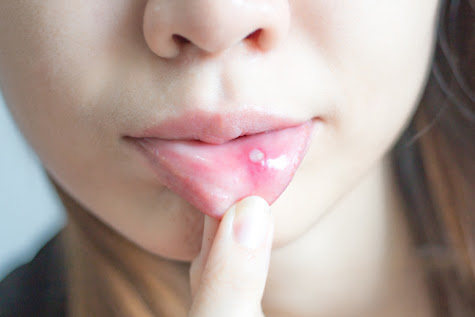Oral Thrush Symptoms And Early Stages
A small amount of fungus is normal to live in your mouth. However, in some cases, the fungus can quickly multiply and cause a yeast infection. Oral thrush occurs when a yeast infection develops inside your mouth. Thrush is another name for oral candidiasis, oropharyngeal candidiasis, or simply thrush.
Oral thrush is most common in infants and toddlers. It results in the formation of white or yellowish lesions or spots on the inner cheeks, tongue, gums, lips, and roof of the mouth. Those spots usually disappear after treatment. The infection is usually mild and causes no serious problems. It is frequently treatable. It can, however, spread to other parts of the body and cause potentially serious complications in people with weakened immune systems.
Symptoms of oral thrush
Oral thrush may not cause any symptoms in its early stages. However, as the infection worsens, one or more of the following symptoms may appear: white or yellow spots on your inner cheeks, tongue, tonsils, gums, or lips; slight bleeding if the spots are scraped; soreness or burning in your mouth; a cotton-like sensation in your mouth; difficulty swallowing; a bad taste in your mouth; a loss of taste; redness, irritation, and pain under dentures (denture stomatitis).
Oral thrush causes
An overgrowth of the fungus Candida albicans causes oral thrush and other yeast infections (C. albicans). It is normal for C. albicans to live in your mouth without causing any harm. Beneficial bacteria in your body help keep C. albicans under control when your immune system is functioning properly. However, if your immune system is compromised or your body's microorganism balance is disrupted, the fungus can grow out of control. If you take medications that reduce the number of friendly microorganisms in your body, such as antibiotics, you may develop an overgrowth of Candida albicans, which causes oral thrush.
Chemotherapy and radiation therapy are two cancer treatments that can harm or kill healthy cells. This increases your vulnerability to oral thrush and other infections. Conditions that compromise your immune system, such as leukemia and HIV, increase your chances of developing oral thrush. Oral thrush is a common opportunistic infection among HIV patients. Diabetes can also contribute to oral thrush. Diabetes wreaks havoc on your immune system and causes high blood sugar levels.
Oral thrush diagnosis
Your doctor may be able to diagnose oral thrush simply by looking for the characteristic lesions that it causes in your mouth. Fluconazole tablets for fungalinfections.
In some cases, a biopsy of the affected area may be performed to confirm the diagnosis. A biopsy will be performed by scraping a small portion of the lesion from your mouth. The sample will then be sent to a laboratory for C. albicans testing.
If your doctor suspects you have oral thrush in your esophagus, a throat swab culture or endoscopy may be used to confirm the diagnosis.
To perform a throat swab culture, your doctor takes a tissue sample from the back of your throat with a cotton swab.
Oral thrush treatment
Your doctor may prescribe one or more of the following medications to treat oral thrush. Fluconazole (Diflucan), an oral antifungal medication, clotrimazole (Mycelex Troche), an antifungal lozenge, nystatin (Nystop, Nyata), an antifungal mouthwash that you can swish in your mouth or swab in your baby's mouth, itraconazole (Sporanox), an oral antifungal medication used to treat people who don't respond to other treatments for oral.




Comments
Post a Comment